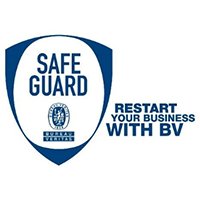Preparation and finalization of management accounts for getting ready and reconciling the supporting schedules, while the audit is being conducted, may result in delays in meeting the deadline to deliver the audited financial statements promptly, and further distract and pile up the day-to-day operational tasks of the company’s management.
Having a comprehensive audit strategy and adopting best practices by the companies throughout the year can help everyone relax when the audit team arrives.
One of the practices is to plan and conduct a soft close audit, to review, verify and confirm the books of accounts, supporting schedules and related information are up-to-date, further, these will be ready and available to consolidate the subsequent period transactions (until the FY end) at the time of the year-end audit.
The soft close audit is the practice wherein the external auditors majorly focus on verifying historical transactions up to the cut-off date e.g. 10-month soft close audit (Oct 31). The auditors generally perform the test of the internal controls along with supporting samples, performing or/and planning a detailed walkthrough on the material and complex transactions during the soft-close to facilitate his year-end audit work.
This helps him to identify material discrepancies in the books of accounts, if any, beforehand to discuss with the management and ensure a timely conclusion of the audit post-year-end.
Soft Close Audit provides an opportunity for the management to plan and prepare the following points:
- Closing Checklist: Will be performed to ensure that all month-end processes are completed, and all journal entries are posted. If there is no checklist to follow, quarterly and annual entries may be overlooked.
- Document Verification: Management should not be scrambling at the hard close audit stage to find documentation for the auditors, e.g. if the Verification of documents and related agreements are required, like debt agreements, leasing arrangements, and contracts with major customers and vendors could be identified at the soft close audit stage to arrange them at time of the year- end audit.
- Internal Controls: Soft close audit provides enough time to plan and conduct a test of controls to the external auditors to verify, whether these controls are effective, efficient, and up to the standards.
- New Accounting Standards: Helps external auditors and management to reconcile the applicable interpretation (if any) of the newly introduced standards, changes, or amendments before closing and reporting the books of accounts for internal review purposes.
To give awareness of new accounting pronouncements and modifications to existing pronouncements continually being introduced. It’s important to pay attention to the effective dates, and you should start on them earlier than you expect since they usually require more work. - Non-Recurring Transactions: If there are non-recurring transactions like the sale of property, acquisition, significant leases, a new incentive plan for management, a new line of business with a unique revenue stream, a change in debt, etc. Reach out early to soft close the audit, as it will take time for discussion and reach out to a consensus.
- Balance Sheet Reconciliations: Balance sheet reconciliation at the soft close is audited to find any discrepancies, and fix processes throughout the year. For example, old outstanding checks on the bank reconciliation can be a sign of lost or duplicate checks.
- Revenue Testing: To ensure accurate recording of revenue, having a process to verify that all shipments or services are billed promptly.
- Expense Testing: A review of repair and maintenance can give an indication of impairment and identify the items that should have been capitalized as fixed assets.
Written by Raheel Tamimi, Mian Muhammad Azeem and Mufaddal Shabbir













